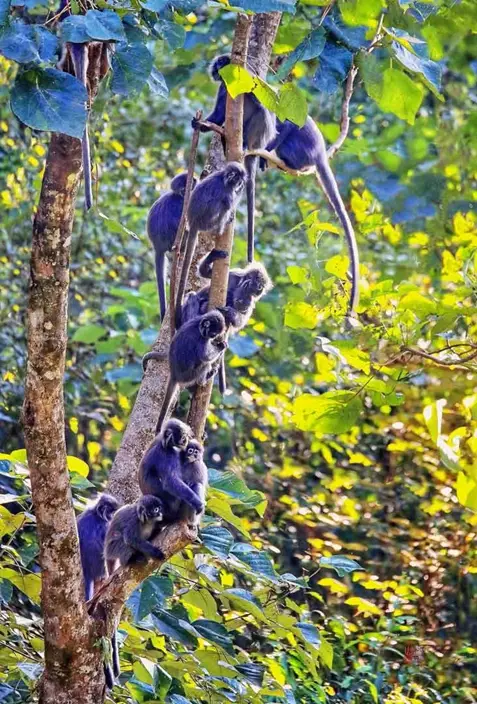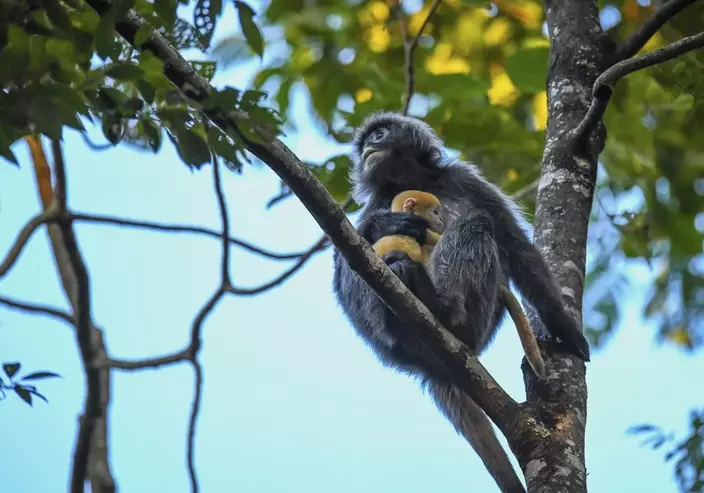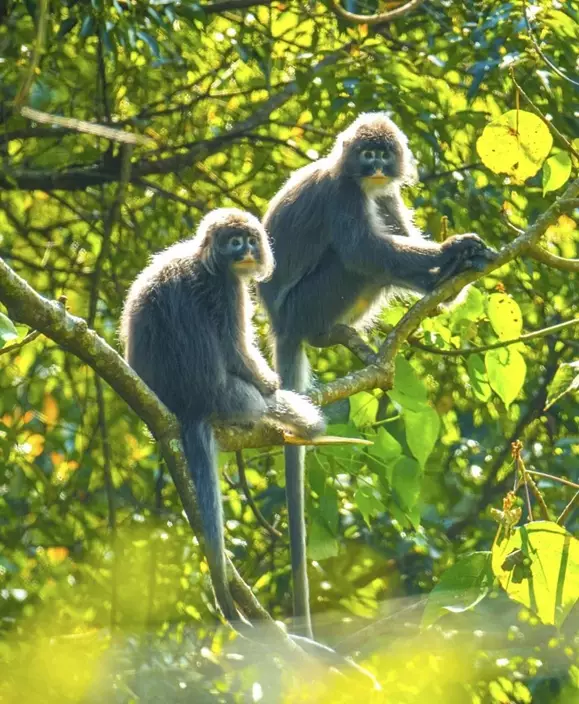Hundreds of Phayre’s leaf monkeys have been seen in a forest in southwest China.
Zheng Shanhe, an amateur photographer and an ecological protection volunteer, said he saw more than 200 monkeys in Mangshi in Dehong, an autonomous prefecture in southwest China's Yunnan Province, earlier this month.

Some Phayre’s leaf monkeys playing on a tree. The creatures like living in groups, but it is rare to find such a large number. /Courtesy of Zheng Shanhe
“We came across these 'elves' beside a mountain stream several times. They were drinking water and playing there after eating leaves. The scene is really exciting, just like that in the Journey to the West,” said Zheng, referring to the popular TV series adapted from the Chinese classical novel of the same name.
Phayre’s leaf monkeys, also known as Phayre’s langur, are an endangered species under China’s first-class protection, which mainly inhabit in Yunnan and neighboring Myanmar.
According to experts on wildlife, the newborns are golden and their hair will gradually turn grey when they are about five or six months old.

A monkey holds her newborn. The newborns are golden and their hair will gradually turn grey when they are about five or six months old. /Courtesy of Zheng Shanhe
Belonging to the species of lutung, these creatures love foraging and playing on the top of woods. They usually live in groups – 60 to 80 at most, and so it is really rare to find such a large number this time.

Two Phayre’s leaf monkeys sit on a tree. Local forestry authorities said they will take measures to better protect their habitats. /Courtesy of Zheng Shanhe
Yang Xinkai, chief of the Dehong forestry department, said they will try to make clear the exact number of monkeys by working with forest rangers and volunteers and taking measures to better protect their habitats.


